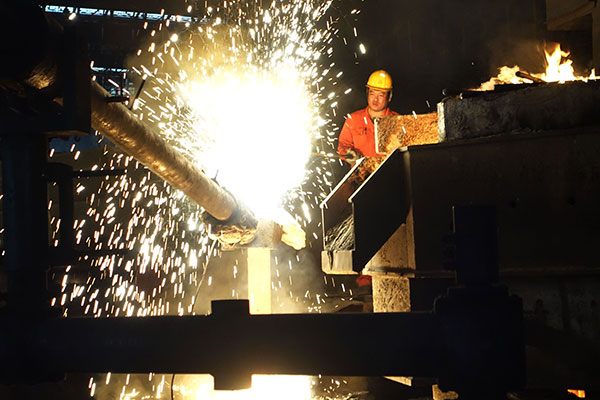Workers at a steel factory in Dalian, Liaoning province. [Photo/China Daily]
Cooperation in capacity to reshape global value chain

According to United Nations Industrial Development Organization's Industrial Development Report 2016, China ranks fifth in the global Competitive Industrial Performance Index.
As China is the largest trade partner of many countries along the routes, its production capacity can help upgrade the manufacturing industries and improve infrastructure in countries along the routes, especially developing countries.
At a recent meeting on the Belt and Road Initiative, President Xi Jinping said that China has launched international production capacity cooperation with more than 20 countries.
"Through production capacity cooperation, China is transferring its advantageous industries and technologies to countries along the routes, and thus is accelerating the diffusion of technology and economic growth globally," said Zhang Yongjun, a researcher at the China Center for International Economic Exchanges.
The production capacity cooperation has made remarkable achievements in a short time. According to China's National Development and Reform Commission, bilateral and multilateral production capacity cooperation funds along the Belt and Road routes, such as the China-Africa Production Capacity Fund and China-Kazakhstan Production Capacity Fund, exceeded $100 billion by July.
Several cooperation platforms for production capacity and equipment manufacturing have been established in Southeast Asian countries such as Indonesia and Eastern European countries like Belarus.
International production capacity cooperation does not mean that China is transferring its overcapacity to other countries, instead it is win-win cooperation based on supply and demand and the optimal allocation of resources on a global scale.
"Production capacity cooperation is not dumping of low quality products in other countries, but competitive cooperation," said Cao Yuanzheng, former chief economist of the Bank of China. "For instance, the cost of the majority of steel products produced in China is at the globally average level. These products are not outdated and have a competitive advantage in the market," Cao said.
